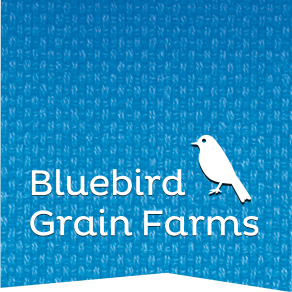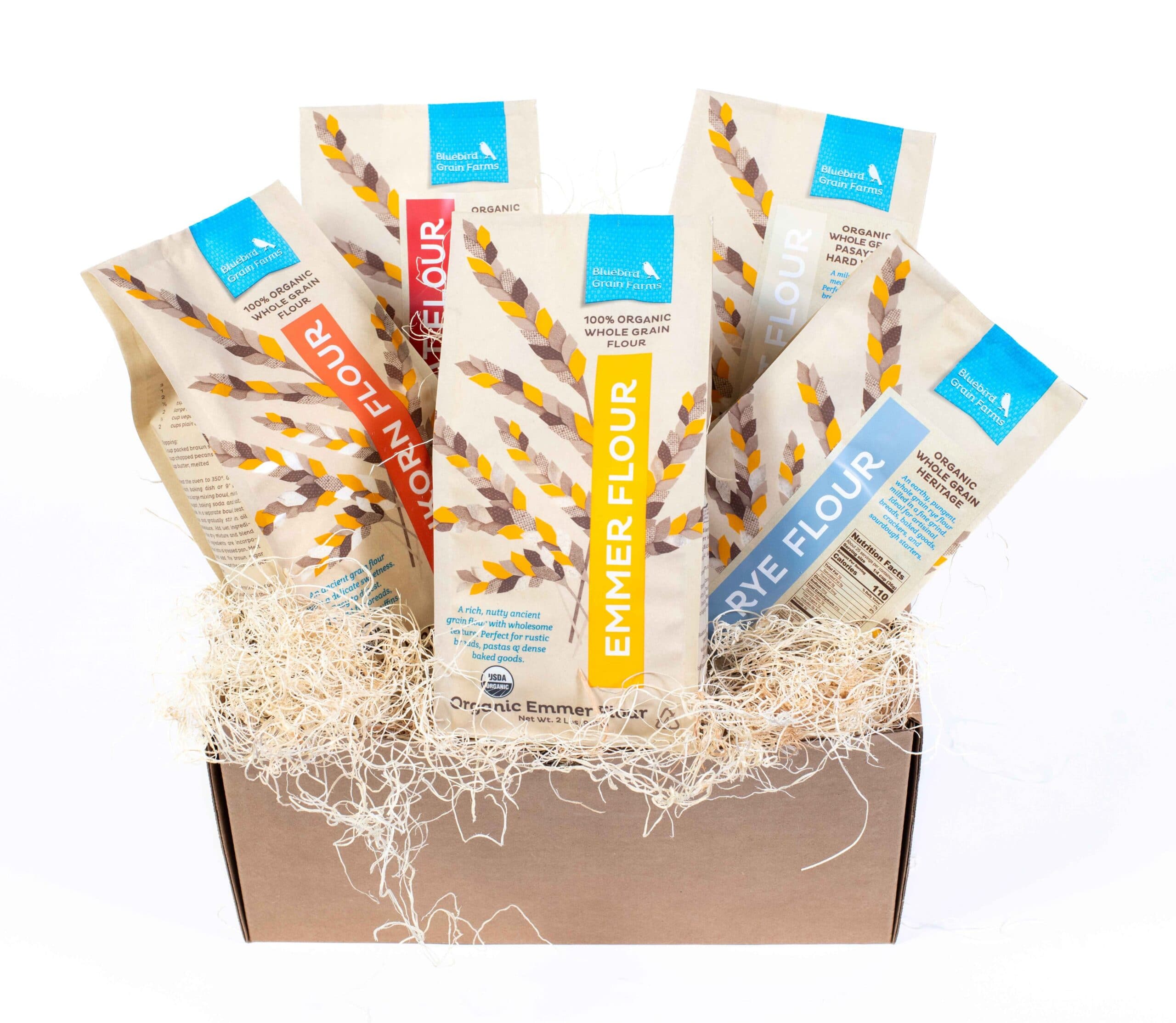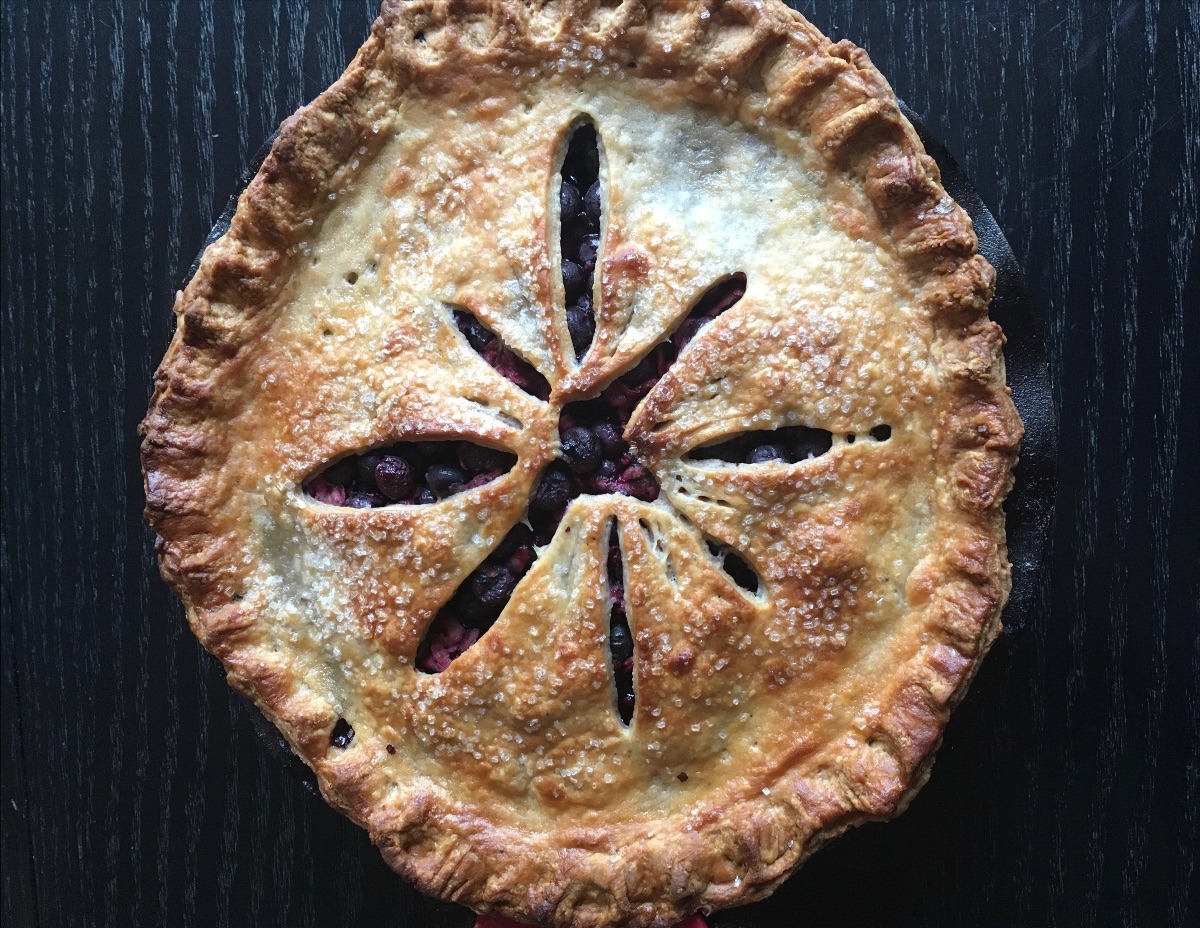
Ashley Lodato, Bluebird Grain Farms staff writer.
Early in the pandemic, says New Day Cooperative Distribution co-founder Devra “Dev” Gartenstein, “grocery store shelves were stripped bare and so many small local producers had lost important revenue streams like farmers markets and dine-in eating.”
In response Gartenstein, a “serial entrepreneur” who has owned and operated small food businesses for more than 30 years, launched a new model, bringing together local business owners looking for new sales outlets with families finding new ways to shop. “Producer-direct home delivery through a centralized platform seemed like a natural step,” Gartenstein says.
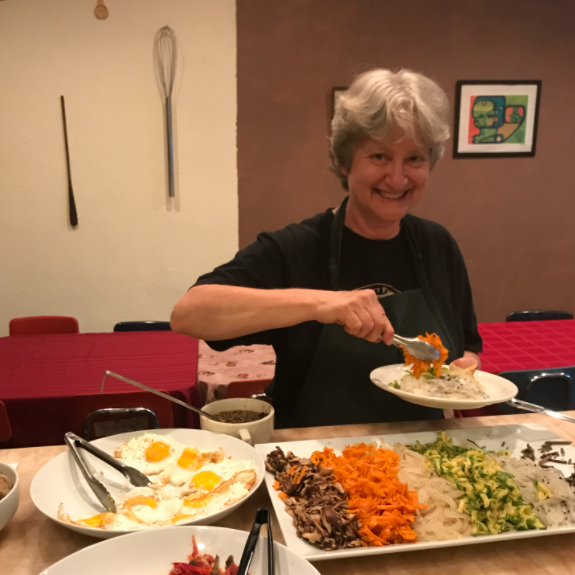 Working with co-founder Rachel Linkhart, who is now the General Manager at New Day, Gartenstein started conversations between two worker-owned companies: Patty Pan Cooperative, a sole proprietorship that Garteinstein founded in 1997 before converting it to a cooperative in 2013, and Equal Exchange, which strives to build a democratic food system. Less than two years later, the partnership between Patty Pan and Equal Exchange has grown into a collaboration of more than 40 local and mission-driven companies. When you shop with New Day, you purchase directly from small business owners.
Working with co-founder Rachel Linkhart, who is now the General Manager at New Day, Gartenstein started conversations between two worker-owned companies: Patty Pan Cooperative, a sole proprietorship that Garteinstein founded in 1997 before converting it to a cooperative in 2013, and Equal Exchange, which strives to build a democratic food system. Less than two years later, the partnership between Patty Pan and Equal Exchange has grown into a collaboration of more than 40 local and mission-driven companies. When you shop with New Day, you purchase directly from small business owners.
Gartenstein started her first food business in 1987, “with no experience or training in either food or business.” Her philosophy degree made her “not exactly employable,” she says, “but I liked to cook…so I gave entrepreneurship a try.”
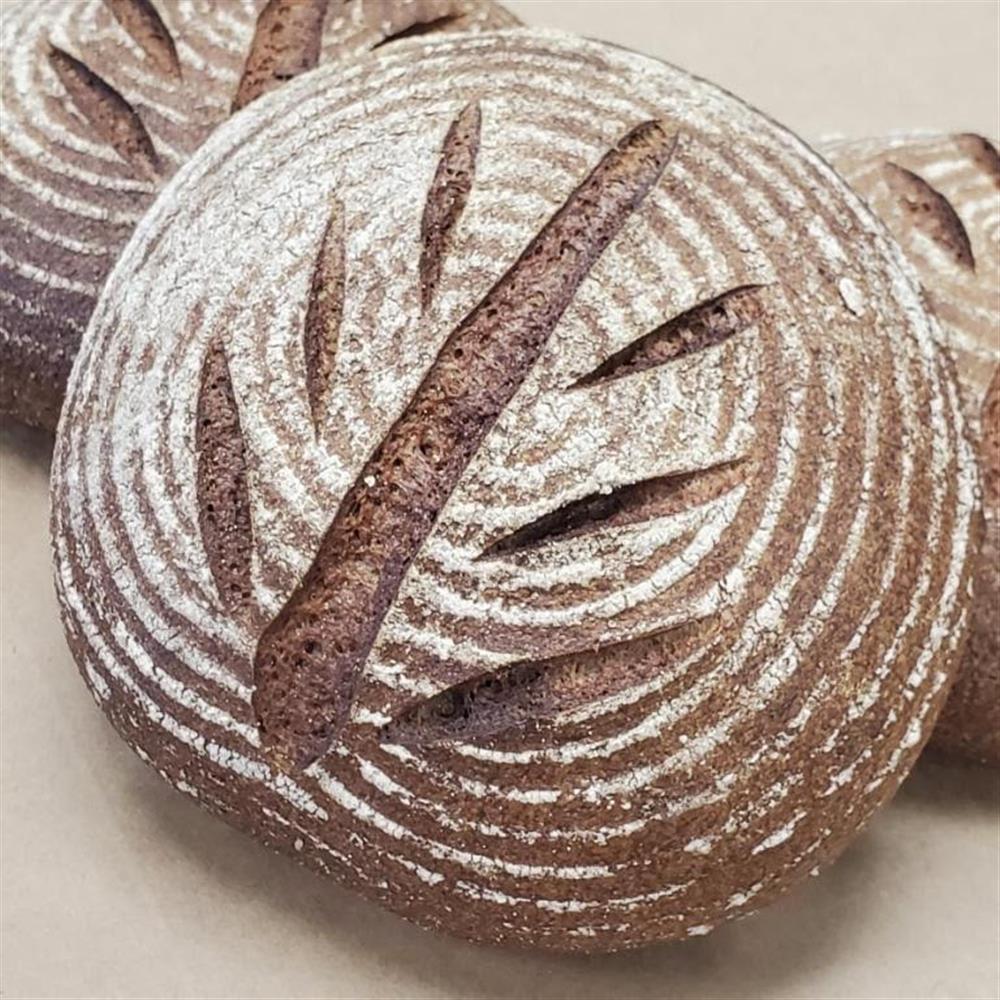 Something she was doing worked, because “that business morphed into another, which morphed into yet another,” Gartenstein says. Soon she began selling tamales at Seattle-area farmers markets because “they were such a great vehicle for showcasing local ingredients.” Patty Pan began in these markets, converting after nearly 20 years into a worker-owned cooperative.
Something she was doing worked, because “that business morphed into another, which morphed into yet another,” Gartenstein says. Soon she began selling tamales at Seattle-area farmers markets because “they were such a great vehicle for showcasing local ingredients.” Patty Pan began in these markets, converting after nearly 20 years into a worker-owned cooperative.
Gartenstein is enthusiastic about cooperatively-owned businesses, in part because the pooling of resources for delivery and infrastructure means all owners “have more time and energy to focus on things that matter, like cooking and farming and spending time with our families.” But even more so because cooperatives like Patty Pan and New Day are “so much more than the sum of [their] parts. From the producers, to the customers, to the employees and the board, we all bring skills, enthusiasm, and a passion for local food made with heart,” she says.
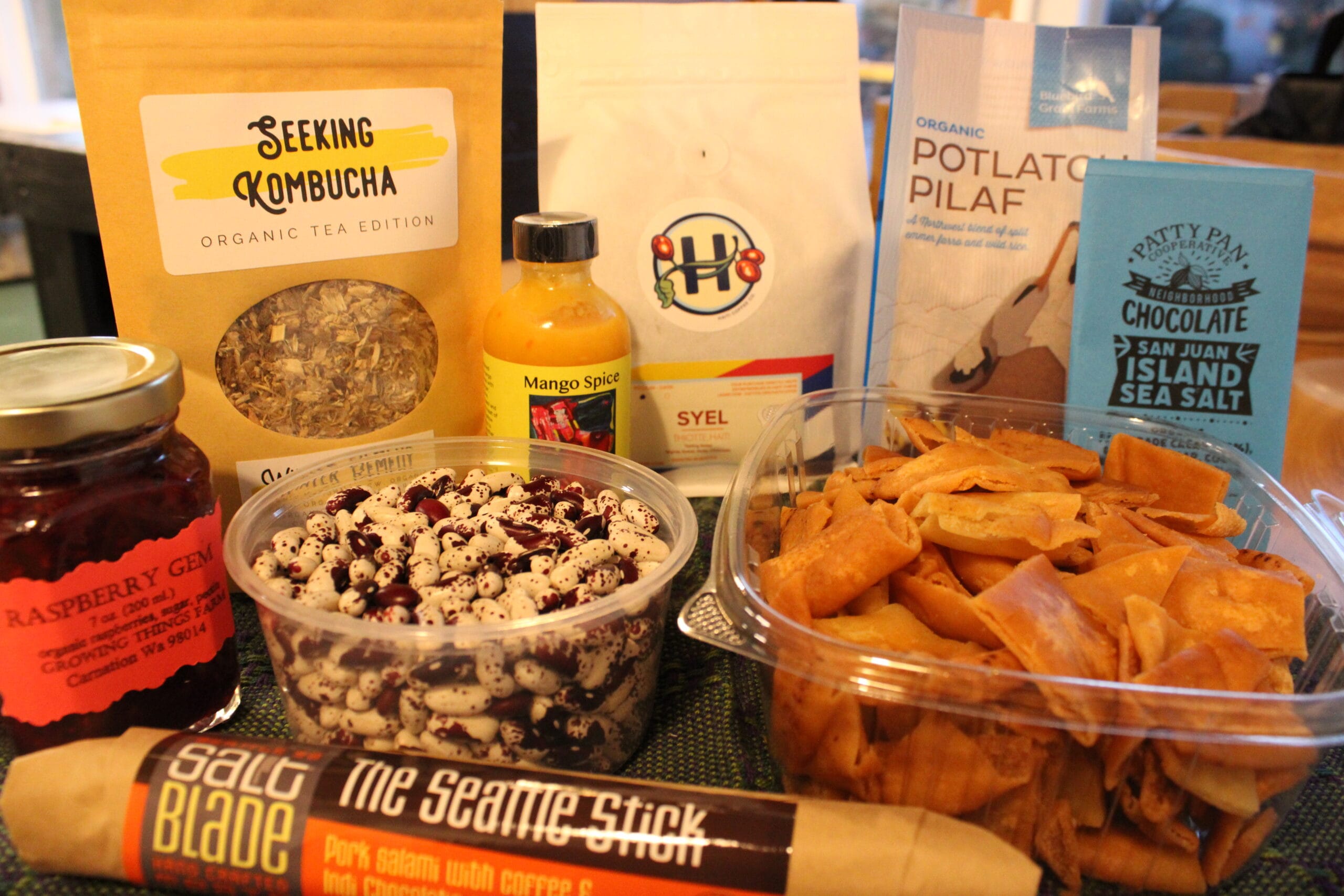 New Day shoppers select from a wide range of products, from meat to skincare to prepared meals to kombucha to condiments to kraut to fresh baked goods, which include staples like bagels and breads as well as specialty items like Körnerbrot, Knish, and Brötchen. They then place their orders and select a surprisingly inexpensive home delivery or storefront pickup.
New Day shoppers select from a wide range of products, from meat to skincare to prepared meals to kombucha to condiments to kraut to fresh baked goods, which include staples like bagels and breads as well as specialty items like Körnerbrot, Knish, and Brötchen. They then place their orders and select a surprisingly inexpensive home delivery or storefront pickup.
Gartenstein learned about Bluebird Grain Farms years ago, when Bluebird had a presence at the Seattle-area markets where Patty Pan had a booth. “We’d trade for quesadillas,” Gartenstein says. “I’ve been a huge fan of the Potlatch Pilaf ever since. I even bring it for family Thanksgivings on the East Coast.”
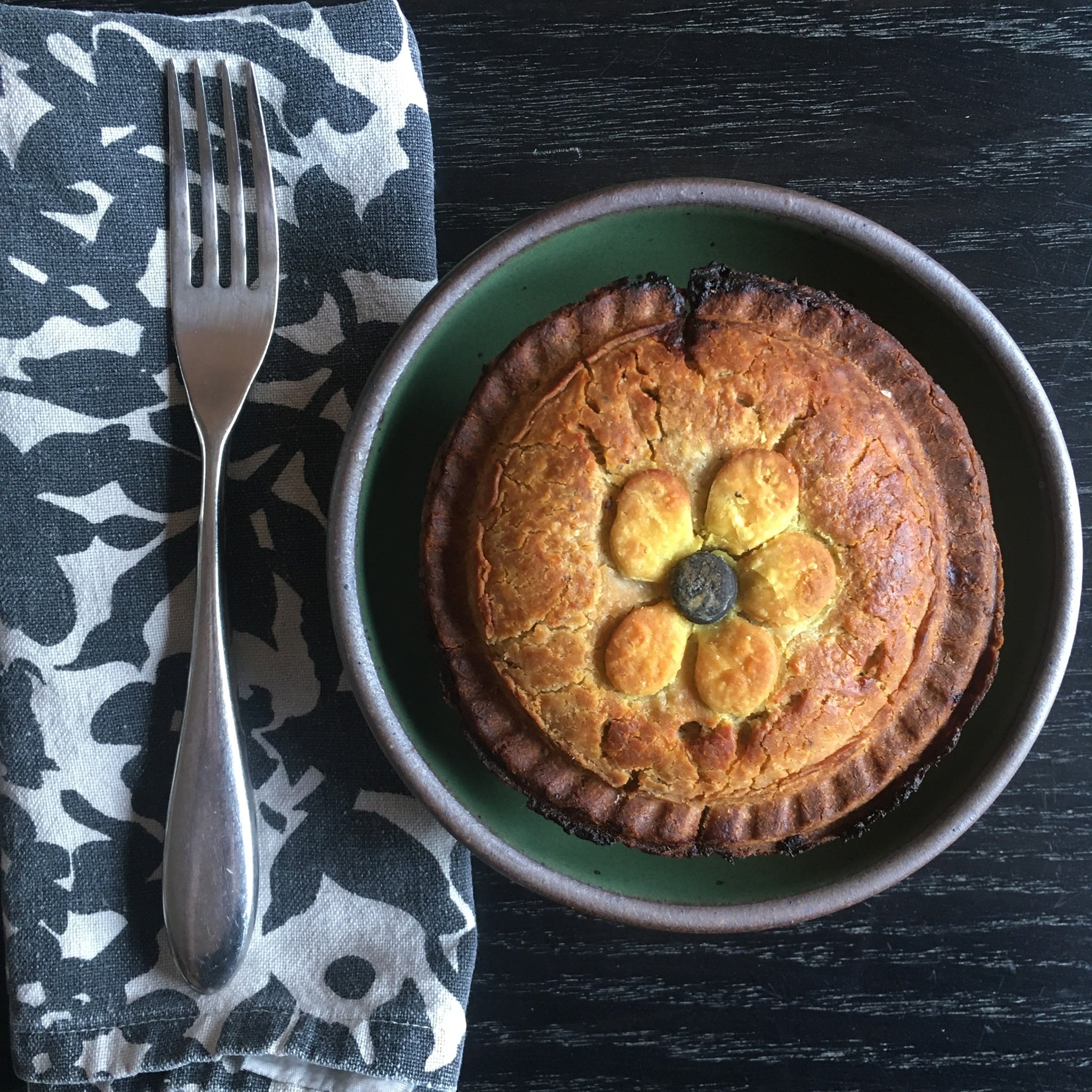 New Day has been so effective in connecting producers to consumers that they are getting ready to open a brick and mortar storefront in Seattle’s Maple Leaf neighborhood, says Gartenstein, who plans to launch the store in April. Fueling what seems to be Gartenstein’s boundless energy is her engagement with her various projects. “I love my work and it stays interesting, even after all this time,” she says.
New Day has been so effective in connecting producers to consumers that they are getting ready to open a brick and mortar storefront in Seattle’s Maple Leaf neighborhood, says Gartenstein, who plans to launch the store in April. Fueling what seems to be Gartenstein’s boundless energy is her engagement with her various projects. “I love my work and it stays interesting, even after all this time,” she says.
In addition to what is thus far a successful career as a self-taught entrepreneur (“through trial and error, with plenty of missteps along the way,” Gartenstein says), Gartenstein is also an author of three books: Cavemen, Monks, and Slow Food, The Accidental Vegan, and Local Bounty. “Well,” she says, “I just have a lot to say and I really love books.”
She also enjoys experimenting with food combinations, and New Day’s recipe collection reflects this, with familiar favorites–like smoked salmon pasta salad–and ethnic twists on standard fare–like roasted potatoes and Brussels sprouts with Labneh and z’aatar.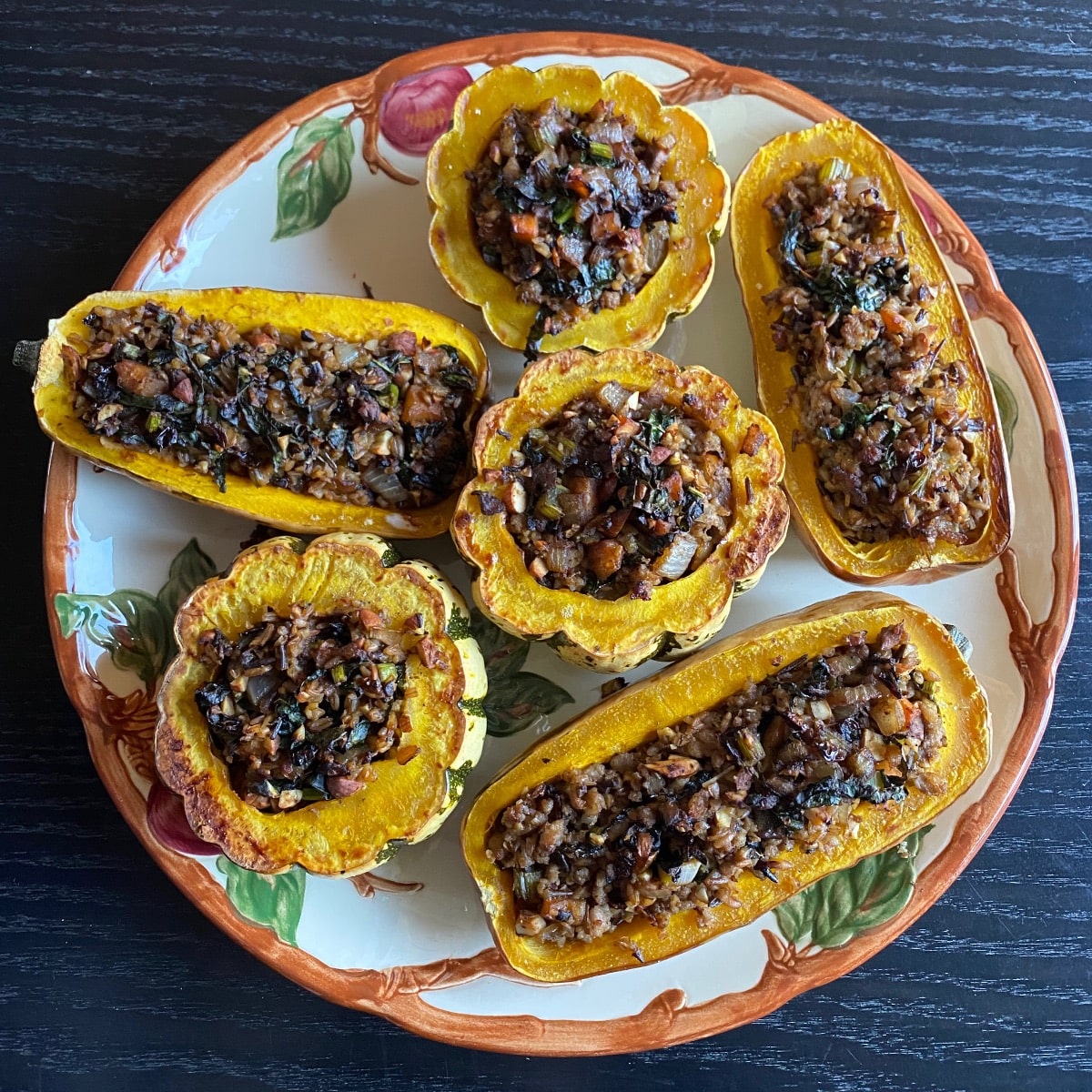
Despite many Americans’ affinity for refined foods, starches, and sugar, Gartenstein says she has hope for the future of American eating. “It feels like we collectively have become much more tuned into good food over the past few decades,” she says, “and once you start eating food made with good ingredients grown in good soil, you really can’t go back.”
Learn more about New Day Cooperative Distribution by visiting their website or following them on Facebook.
